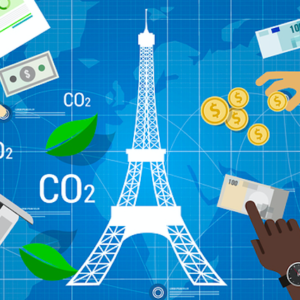Editor’s Note: For another viewpoint, see Trump Is Absolutely Correct to Withdraw From the Paris Climate Agreement
In a democracy, it’s important to be outraged when public servants lie about their rationale for decisions — especially big decisions that affect the future of our country and the planet. We can’t let ourselves be mollified by the constant barrage of distortions and misstatements of facts by politicians today. We must hold onto our outrage, and further, we must use that outrage to push for change. Our future depends on it.
Recently the Trump administration filed paperwork to begin the formal process of withdrawing from the Paris climate agreement. In a statement to the press, Secretary of State Mike Pompeo said, “President Trump made the decision to withdraw from the Paris Agreement because of the unfair economic burden imposed on American workers, businesses, and taxpayers by U.S. pledges made under the Agreement.”
In other words, Trump believes that staying in the agreement would be bad for business and the economy. That’s just not true. It’s the same argument the fossil fuel industry has been pushing for decades. That we can’t afford to reduce the use of fossil fuels. That we have to choose between polar bears and jobs. That we can’t protect the environment and still grow the economy.
It was a lie in the late 1970s when Exxon and others started pushing it. And it’s even more of a lie now. The hundreds of thousands of businesses in the network I represent are proving everyday that business can thrive by being sustainable. They don’t think protecting the environment and aggressively addressing the climate crisis would be bad for business. Quite the opposite, they think it’s vital — as if our long-term survival depended on it.
Our organization co-sponsors a campaign of governors, mayors, business leaders and others to pledge publicly to keep to the Paris Agreement, even if the U.S. withdraws. Today, the WeAreStillIn campaign has more than 3,800 total signers, including more than 2,209 businesses and investors. Among those are well-known brands like Walmart, Unilever, McDonald’s, Nestle US, Nike, Target, Google, Facebook, Johnson & Johnson, Levi Straus, Tiffany and Under Armor.
More proof is everywhere. According to Environmental Entrepreneur’s report for 2018, “Clean jobs outnumber fossil fuels jobs nearly three to one (3.26 million to 1.17 million) and clean energy employers said they anticipate 6 percent job growth for 2019.” That’s compared to 2.7 percent total job growth for all non-farm industries in 2018.
Yes government subsidies have helped this trend, but two points about that: first, don’t we want our government to subsidize the growth of cleaner, less damaging energy sources? And second, our government still subsidizes the fossil fuel industry by between $20 billion and $649 billion per year. This, while government figures for subsidies to clean/alternative energy was only $10 million in 2016, the last year reported.
Meanwhile, carbon pricing systems are working in “some 40 countries and more than 20 cities, states and provinces around the world. Carbon pricing systems now cover about 13 percent of annual global greenhouse gas emissions,” according to the World Bank.
And yet, the administration believes that the Paris Agreement would be bad for business. In fairness, the coal industry and others in the larger fossil fuel industry still have big costs ahead of them as they transition to cleaner energy. But if we are to succeed in addressing the climate crisis, that needs to happen with or without Paris. If they were responsible, leaders of those businesses would have started the transition decades ago. Instead they let politicians enable them with lies.
In the end, business arguments against the Paris Agreement are like the paint companies that said they would go out of business if they couldn’t keep lead in their paint. Or when the oil companies said they couldn’t afford to remove lead from gasoline. They may have a First Amendment right to lie in their advertising and their lobbying, and the politicians in their pocket may have a First Amendment right to lie about their rationale for making public policy that protects them, but we don’t have to agree. In a democracy, lies are supposed to be countered, shouted down and acted against until they stop.
The Paris climate agreement is a bright line in the fight to save our planet. Claims that it would be bad for business should not carry any weight. They should be dismissed outright. We need to focus on the costs of inaction and the potential benefits from taking swift, bold steps to address the climate crisis. Those benefits are for all the enjoy, including business.

